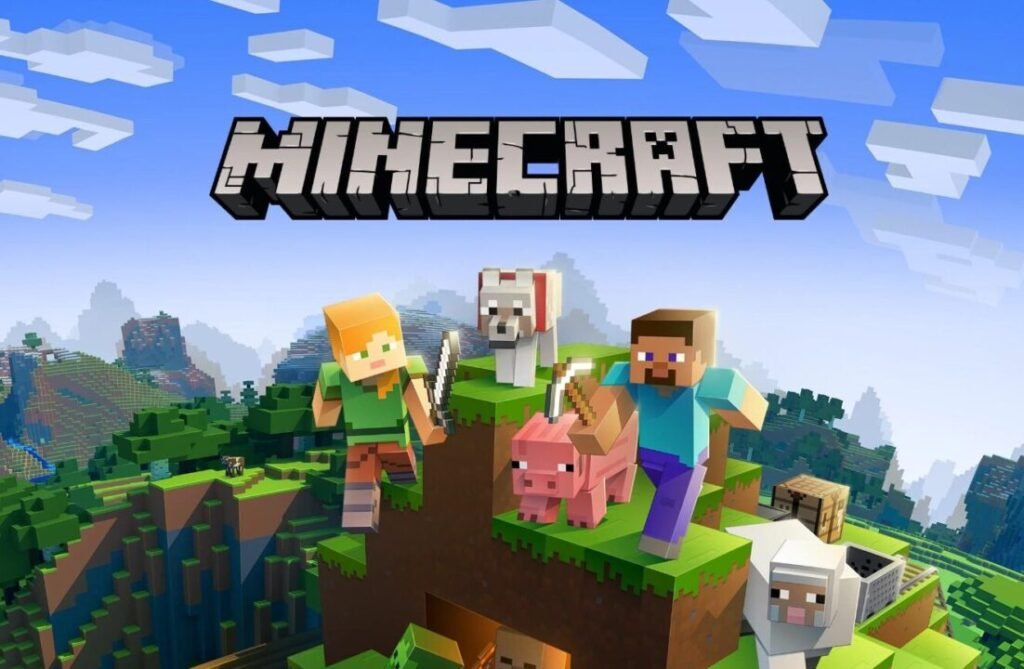Navigating Milestones in Video Game History
Video games transcend mere entertainment, emerging as a profound cultural phenomenon that resonates across all demographics.
They challenge, inspire, and continuously evolve, pushing the boundaries of technology and creativity.
The latter inspired us to compile a list of the 50 most favorite games of all time.
In fact, this is not just a list; it’s a journey through the rich tapestry of gaming history that has not only defined entertainment but also influenced global culture. Join us as we delve into the milestones that have shaped this vibrant landscape.

Early Innovations: The Dawn of Video Gaming
The genesis of video gaming sparked an era of digital exploration, marked by iconic titles such as Pac-Man and Tetris.
These games did more than entertain; they introduced a new form of interactive media, laying the foundational stones for the burgeoning gaming industry.
With simple yet addictive gameplay, these early games proved that video games could captivate any audience, setting the stage for a multibillion-dollar industry.
The Rise of Consoles and Iconic Franchises
The advent of home gaming consoles brought video games into living rooms worldwide, birthing franchises that would become household names.
Nintendo, Sony, and Microsoft were pivotal, with games like Super Mario Bros., The Legend of Zelda, and Final Fantasy.
These games expanded the market, infused pop culture with new lore, and showed the potential of video games as a narrative medium.
Genre Innovations and Gameplay Evolution
From the first-person shooters to sprawling open worlds, video game genres have seen significant evolution.
Doom introduced a new level of action and graphics in shooting games, while Grand Theft Auto III offered unprecedented freedom in an expansive urban landscape.
These games pushed the limits of existing genres and led to the creation of detailed, immersive worlds.
The Golden Age: Iconic Titles of the 80s and 90s
This era heralded a boom of creativity and technological advancement.
Super Mario Bros. refined platform gaming mechanics, and Sonic the Hedgehog brought speed and attitude to the genre. Meanwhile, strategy games like Civilization challenged players to think critically about resource management and tactical governance, blending entertainment with intellectual stimulation.
Role-Playing Games and Narrative Complexity
Role-playing games (RPGs) like Final Fantasy VII and The Elder Scrolls III: Morrowind revolutionized storytelling by allowing players to influence the narrative through choices and actions.
These games offered expansive worlds filled with rich lore and complex characters, setting new standards for narrative depth in gaming.
Revolutionizing Game Design in the 2000s
The new millennium brought sophisticated technology that enhanced game design.
Metal Gear Solid 2 and Half-Life 2 were notable for their immersive narratives and groundbreaking gameplay. Online multiplayer games like World of Warcraft and Counter-Strike transformed gaming into a social experience, creating global communities.
Modern Gaming: Diversity and Innovation
The rise of indie and mobile gaming has democratized the creation and consumption of video games.
Titles like Minecraft and Pokémon GO have altered traditional gaming, emphasizing creativity, accessibility, and community engagement. Additionally, advances in VR with games like Half-Life: Alyx continue to push the boundaries of immersion.

The Pantheon of Play: The 50 Most Favorite Games of All Time
In the world of gaming, certain titles have risen to iconic status, shaping the landscape of entertainment and culture.
Here’s a closer look at the 50 most favorite video games of all time, each a masterpiece in its own right:
- Tetris – A simple yet addictive puzzle that revolutionized the gaming world with its debut in 1984.
- Minecraft – This sandbox game allows players to build and explore their own pixelated worlds, emphasizing creativity.
- Grand Theft Auto V – Known for its open-world freedom and rich narrative, this game has become a cultural phenomenon.
- The Legend of Zelda: Breath of the Wild – A revolutionary open-world adventure that redefined its genre.
- Super Mario Bros. – This platformer helped save the video game industry during the 1980s.
- Pokémon Red and Blue – Games that launched a multimedia franchise that has fascinated generations.
- Fortnite – A battle royale game that became a global sensation and a social platform.
- Call of Duty: Modern Warfare – Revitalized the FPS genre with its realistic graphics and engaging multiplayer.
- World of Warcraft – Set the standard for MMORPGs with its vast, engaging fantasy universe.
- The Witcher 3: Wild Hunt – Known for its deep narrative and vast world.
- League of Legends – A cornerstone of the MOBA genre and a leader in the esports scene.
- Super Mario 64 – Pioneered 3D platforming, setting a new standard for video games.
- The Elder Scrolls V: Skyrim – Renowned for its rich lore and open-world adventure.
- Red Dead Redemption 2 – Offers a gripping narrative and highly detailed open world.
- Half-Life 2 – Pushed the boundaries of its genre with its storytelling and physics-based gameplay.
- Portal 2 – Combined ingenious puzzles with a darkly humorous storyline.
- Dark Souls – Famous for its challenging gameplay and complex world-building.
- PUBG: Battlegrounds – Helped popularize the battle royale genre with its intense survival gameplay.
- Super Smash Bros. Ultimate – A fighting game that brings characters from diverse franchises together.
- Overwatch – A team-based FPS known for its diverse cast and strategic depth.
- Dota 2 – Another MOBA giant, central to the growth of esports.
- Halo: Combat Evolved – Revolutionized FPS games with its seamless storytelling and multiplayer modes.
- Final Fantasy VII – A benchmark RPG known for its epic storytelling and memorable characters.
- Metal Gear Solid – Blended cinematic storytelling with stealth gameplay.
- Resident Evil 4 – Innovated the survival horror genre with its over-the-shoulder camera and engaging combat.
- Civilization VI – Offers complex strategies and multiple paths to victory in managing an empire.
- The Sims – Allows players to simulate life, controlling customizable characters and their living environments.
- Mass Effect 2 – Combines sci-fi storytelling with deep role-playing elements.
- Bioshock – A narrative-driven FPS known for its immersive atmosphere and philosophical underpinnings.
- Assassin’s Creed II – Enhanced the series with a compelling story and improved gameplay mechanics.
- StarCraft II – A staple in the RTS genre, known for its competitive gameplay and strategic depth.
- God of War (2018) – Revitalized the franchise with its focus on narrative and character development.
- Animal Crossing: New Horizons – Became a social phenomenon, offering escape and relaxation in a customizable world.
- Mortal Kombat 11 – Known for its intense combat and cinematic story mode.
- Uncharted 4: A Thief’s End – Combines action-adventure with storytelling, delivering cinematic-quality experiences.
- Bloodborne – An action RPG famous for its atmospheric world and challenging combat.
- The Last of Us Part II – Praised for its emotional depth and complex characters.
- Persona 5 – A stylish RPG with deep narrative and engaging combat mechanics.
- Shadow of the Colossus – An artistic game that blends minimalistic landscapes with epic boss fights.
- Genshin Impact – A recent hit known for its open-world adventure and gacha mechanics.
- Rocket League – Combines soccer with vehicles, offering high-octane and competitive multiplayer action.
- Journey – This artistic game offers a beautiful, ephemeral online multiplayer experience.
- Among Us – Became a cultural phenomenon with its simple, social deception gameplay.
- Diablo III – A definitive action RPG known for its fast-paced combat and loot-driven gameplay.
- Borderlands 3 – Known for its humorous narrative, diverse range of weapons, and cooperative gameplay.
- Elden Ring – Merges open-world exploration with challenging combat, maintaining the legacy of Dark Souls.
- Fallout 4 – Offers a vast post-apocalyptic world filled with quests, factions, and choices.
- Super Mario Odyssey – Continues to innovate with new mechanics and expansive worlds.
- Monster Hunter World – Known for its deep gameplay mechanics and cooperative monster hunting.
- Street Fighter V – Maintains its place as a leading competitive fighting game.
This list reflects not only the highest peaks of gaming achievement but also the varied tastes and preferences of a diverse gaming audience.
Each title has left an indelible mark on the industry and continues to influence both developers and gamers around the world.
Through these games, we see the incredible potential of interactive entertainment as a compelling storytelling medium and a complex, engaging form of a
Present Trends and Future Directions
Today’s gaming scene is marked by mobile games reaching wider audiences and the growth of esports, turning video gaming into a spectator sport.
Innovations in virtual reality (VR) and augmented reality (AR) are setting the stage for future gaming experiences, blending the real with the digital.

The Ever-Evolving World of Video Games
Video games have become a dynamic medium for storytelling, art, and social connection.
As we look forward, emerging technologies like AI and cloud computing promise to further revolutionize this field, maintaining gaming’s position at the forefront of technological and creative innovation.
The journey through the world of video games is far from over, continuing to surprise and inspire.
